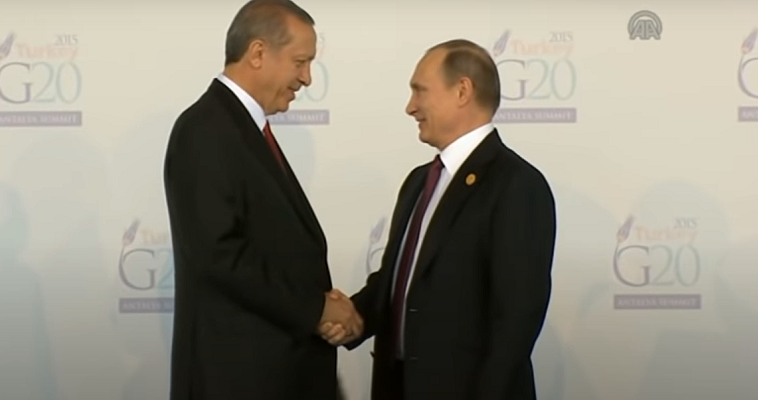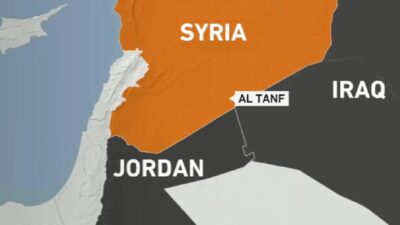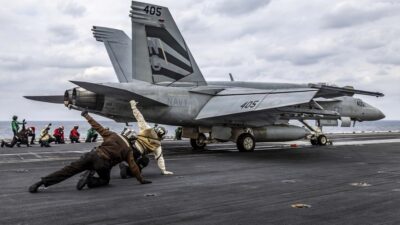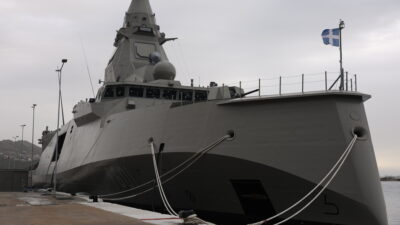Vassilis Fouskas: Turkish elites have national goals, while clientilistic Greek elites do not
23/06/2020
The explosive situation in the Eastern Mediterranean, today, is a consequence of both macro-historical processes and circumstantial factors. Three are the most important structural, macro-historical processes behind the crisis. The first structural process in operation is the crisis and retreat of American hegemony and its gradual release from the Middle East and Europe (recently, the United States announced the withdrawal of an additional 10,000 military personnel from Germany).
The second macro-historical process is the EU’s permanent inability to articulate a common political project on defense and security. The third structural trend is the rise and global economic spread of China. But this is a trend that is not yet able to exercise global hegemony and power beyond the country’s vital “Asian arc” (Central Asia, the Indian Ocean, Southeast Asia, the Himalayas).
The combination of these three structural processes creates hegemonic instability in Eurasia and areas for its exploitation by regional powers, such as Turkey.
The circumstantial factors in the crisis in the Eastern Mediterranean are the “constructions” of structural-permanent processes. Here we single out the detection of hydrocarbons in the EEZs of Cyprus, Egypt and Israel, the instrumentalization of immigration-refugees by the Erdogan regime (as the March crisis showed), in order for the EU and NATO to support Turkey’s position in Syria and Syria, Libya. Northern Iraq (a few days ago, the Turkish army invaded northern Iraq again with the aim of neutralizing Kurdish guerrillas).
Turkish imperialism is unrestrained
A key factor is Turkey’s involvement in the Libyan civil war and its support for the internationally recognized Sarraj government. Turkey’s goal here is (among other things) to gain shares of control of the country’s oil and transport it to Western Europe, to conclude construction projects and to break up the cohesive geopolitical space of the Greek EEZ.
The EEZ delimitation agreement between the Sarraj government and Turkey (the roots of which lie long before it was signed on November 27, 2019), aims to come between and break down the single maritime zones of Greek territory and undermine the rights of Greece, in accordance with international law, and the delimitation of a common EEZ with the Republic of Cyprus and Egypt.
At the same time, however, Turkey is intervening in the interstate cooperation of the EuroMed pipeline, which involves countries such as the United Arab Emirates, Israel, Greece and Italy. Neither the EU, nor China, nor the United States can contain Turkey’s regional imperialism.
Behind it hides a dynamic bourgeoisie (as to whether this is Islamic or non-Islamic is not for consideration here), which is tooled for export and export-oriented, in manufacturing and mining and exploitation of raw materials, in order (among other things) to fuel domestic industrial production for the world as well as for Turkey itself (the issue of supply chain).
Turkey as a regional actor
Turkey is a major regional player in the structure of its galloping globalized industry, while offering a consumer market of 77 million people. Its regional imperialism lies in serving the capital needs of its global capital networks.
They consist of a network of mainly German, Russian, Japanese, Italian and American interests (business and defense), where Turkey participates in a relationship of interdependence, but also with its military engine as the dominant guarantor. But not everything is reduced to the interdependent structures between Turkish and foreign capital.
The Turkish state has a relative autonomy, both towards Turkish capital and towards its globalized shares, so that it can act autonomously as a guarantor of the security of the interests of all capital, but also of the interests of the state and society. The greater the jurisdiction of the Turkish territory and the freer its access to the sources of raw material production, the better for the state, the responsible political parties and their socially redistributive role.
So we should not be surprised as to why Erdogan has won so many electoral contests, although many other factors have contributed to this. Today, Turkey has three war fronts and two pending issues (although under other circumstances pending could be just one): the extremely complex “theater” of Syria, Libya and the Kurdish “theater” in southeastern Turkey and northern Iraq.
Turkey’s martial justice
The Cyprus issue is also pending, where it has been illegally occupying the territory of the Republic of Cyprus since the summer of 1974 and the issue of expanding its jurisdiction in the Aegean (it could be just one pending issue if Greece meant in practice the single defense doctrine with the Republic of Cyprus and not had separated the issues, the famous decoupling, which Vangelis Koufoudakis was the first to critically analyze). On the Syrian front, Turkey is basically balanced by Russia. On the Libyan front, it is balanced by Russia and France. In northern Iraq, to some extent, by America and the UK.
However, due to its position and power in the globalized imperialist chain, Turkey is negotiating and always finds geopolitical gaps to penetrate and exploit, based on the interests of its state and the international funds it serves. Turkey is liquidating its power and expanding, not only in its own interest, but also in the interest of global economic actors.
The delimitation of the EEZ between Italy and Greece, strengthens the bargaining position of Athens in terms of international law. It is wrong to argue, as former Foreign Minister Nikos Kotzias recently said, that Greece has made major concessions. The truth is that concessions have been made on both sides. However, this does not mean that the agreement sets a legal precedent in the Aegean and in the Crete, Dodecanese, Kastellorizo, Egypt and Cyprus zones.
The law expresses and serves power relations and social struggles. If Turkey starts exploring and drilling in Greek territorial waters, ready to open a fourth theater of confrontation (if not war) in order to resolve the pending issues of the Aegean and Cyprus, then Greece will run to hide behind the statement of the chief of the General Staff Konstantinos Floros, because the general referred to land occupation and nothing else.
Where Greece lags behind
Greece’s great deficiency is not that it is less populous than Turkey, nor that it lags behind in deterrence. No! The great lag and strategic disadvantage of Greece is that, to a large extent, it is historically dominated by a clientilistic and deeply subservient political class of people, which puts its political survival above the interests of society.
Liberal clientilistic political and business elites have no interest in defending popular interests against foreign coercion and domination. An importer of German cars does not have an interest in defending either Greek fishing in the Aegean or gas fields in the Cypriot EEZ.
The reason is simple: he makes its profits from stock market investments and the bond market. His role is completely devoid of territoriality. As we have seen, this is not the case with the Turkish elites: the Turkish state acts as the overall capitalist of all the globalized portions of capital that are marketed in the local, regional and global markets.
The result is that the Turkish bourgeoisie wants to have a strong, modern and politically-organized state, while in the case of Greece there is no bourgeoisie that has similar aspirations, especially after 1922. This is not a case of two equivalent bourgeoisie. on both sides of the Aegean, sowing nationalism and hatred on both sides.
Here lies the tragedy of the liberal left and right ideology, which dreams of open borders and friendships of peoples. What exists is the imbalance of order and power and the projection of class interests with a geopolitical strain, under the banner of the Turkish state. So, what I am warning is that Turkey will take from the Greek elites at the negotiating table, what it would never have been able to get from the Greek people through force of arms.





